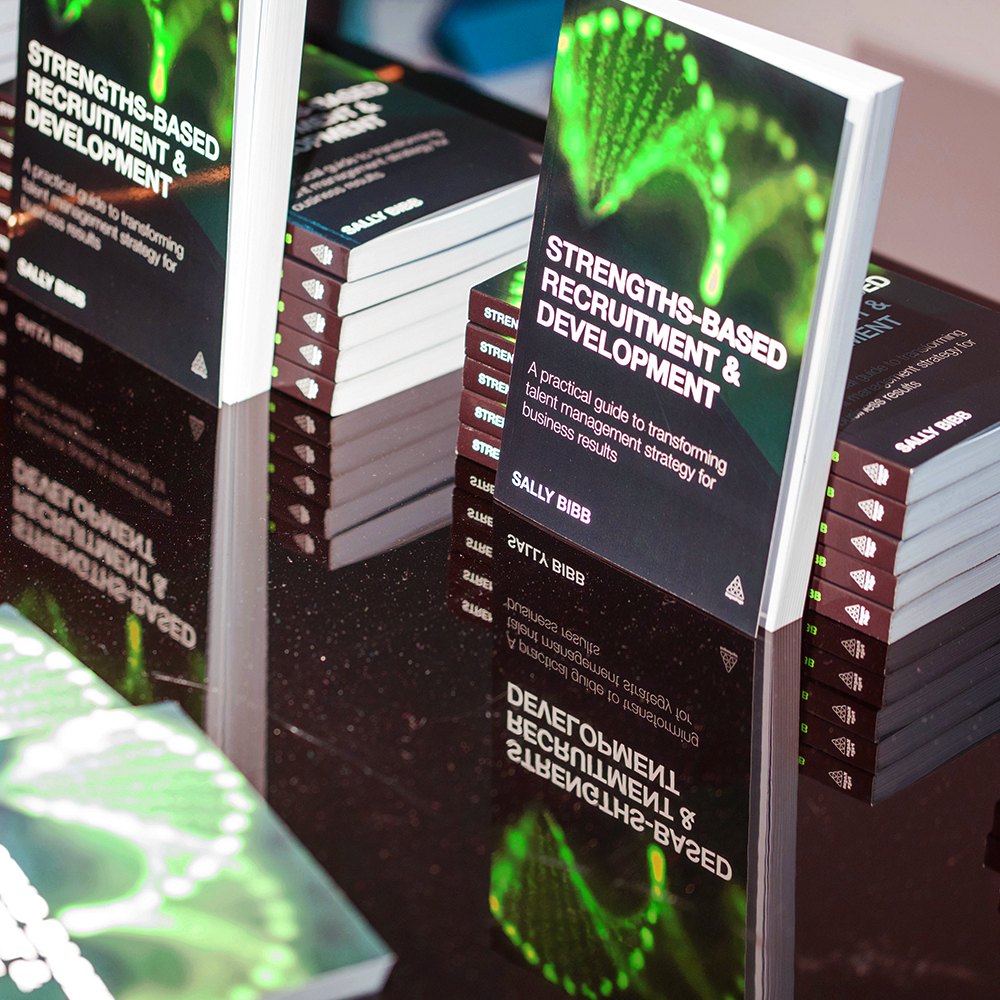
I’ve had two conversations this week that have made me even more determined to push forward with the ‘Strengths Revolution’.
The first was with a friend’s son who has autism.
When Ed was young, his parents were told that he would be unlikely ever to be able to lead an independent life. He’s now 22, has just got a degree, is flat-sharing with friends, and is on post-graduate course. He has a great CV, but had been struggling at interviews, so, recently I spent a few hours helping him prepare for an interview he had coming up.
In our first interview practice Ed’s voice was ‘flat’ and he was tense. But then, I got him to talk about what makes him good at what he does. He told me how he loves telling people’s stories, how he is very accurate and that the details are important to him. He said he finds it easy to listen to people and read their mood, and that he is a very determined person. I was struck by how he lit up as he talked about these things, his natural strengths. The difference in him between our first interview practice and our final run through was amazing. Energised by talking about the things he loves to do, at one point he even exclaimed about the job he hoped to get, “I want this!” It was a wonderful moment. All the tension and anxiety was gone, and he simply couldn’t hide his passion for the work he longs to do. He left our meeting feeling confident and excited about his forthcoming job interview… all because he’d been given the chance to focus on his strengths.
The second conversation was with Iain Wilkie, a partner at EY, about stammering.
Iain set up the Employers Stammering Network. He has a stammer and told me about how hard it has sometimes been not to allow it to get in the way of his wellbeing at work or his ambitions and goals. And, how tough it’s been to deal with others’ responses to him, especially in his early career when his stammer was more pronounced.
My own dad had a stammer. As a child I didn’t think about it, he was my dad and his stammer was part of him. Yet, when people finished his sentences, looked uncomfortable when he couldn’t get his words out, or made fun of him, he must have suffered too. Listening to Iain, it hit home that things have not changed that much; prejudice still exists, and even in 2016 the world of work can be an uncomfortable place for someone with a stammer. Making introductions at meetings, giving presentations, talking to new clients. All are situations that can be challenging for anyone, but imagine the added stress of having a stammer and, worse, being aware that people might think it’s a negative thing. Iain and I discussed how powerful it would be if people (the person with a stammer and those around them) focused on the strengths not the stammer.
Just as autism is only one aspect of who a person is, stammering is only one facet too. And Iain and I reflected on how particular strengths may actually develop in a person as a result of either of these things. Ed’s autism may have been at the root of both his desire for accuracy and his determination. Iain’s stammer may have contributed to the fact that he is a great listener, a resilient person and a respected leader. For both Ed and Iain (and indeed for every one of us), seeing personal strengths clearly, and valuing them, is essential. It elevates the conversation to one of possibilities, dreams and ambitions. The focus shifts away from the things that may have posed great angst and challenge, whether they be autism, stammering, lack of self-confidence or anything else that a person can struggle with.
Knowing and valuing our strengths is the secret to boosting self confidence. Celebrating and talking about our strengths acts like an instant injection of energy and enthusiasm. And, to stretch ourselves in the direction of our strengths is a source of great satisfaction and motivation. The truth is that our strengths are the engine of great personal performance, and when we focus on them (rather than being anxious about or trying to fix our weaknesses) we shine. We become the best of who we are.
Imagine what the workplace (and life itself) would be like if everyone focused on their strengths.
Sally Bibb’s book Strengths-based Recruitment and Development: A Practical Guide to Transforming Talent Management Strategy for Business Results (the first on the subject) is published by Kogan Page. Find the book at the Kogan Page website.


